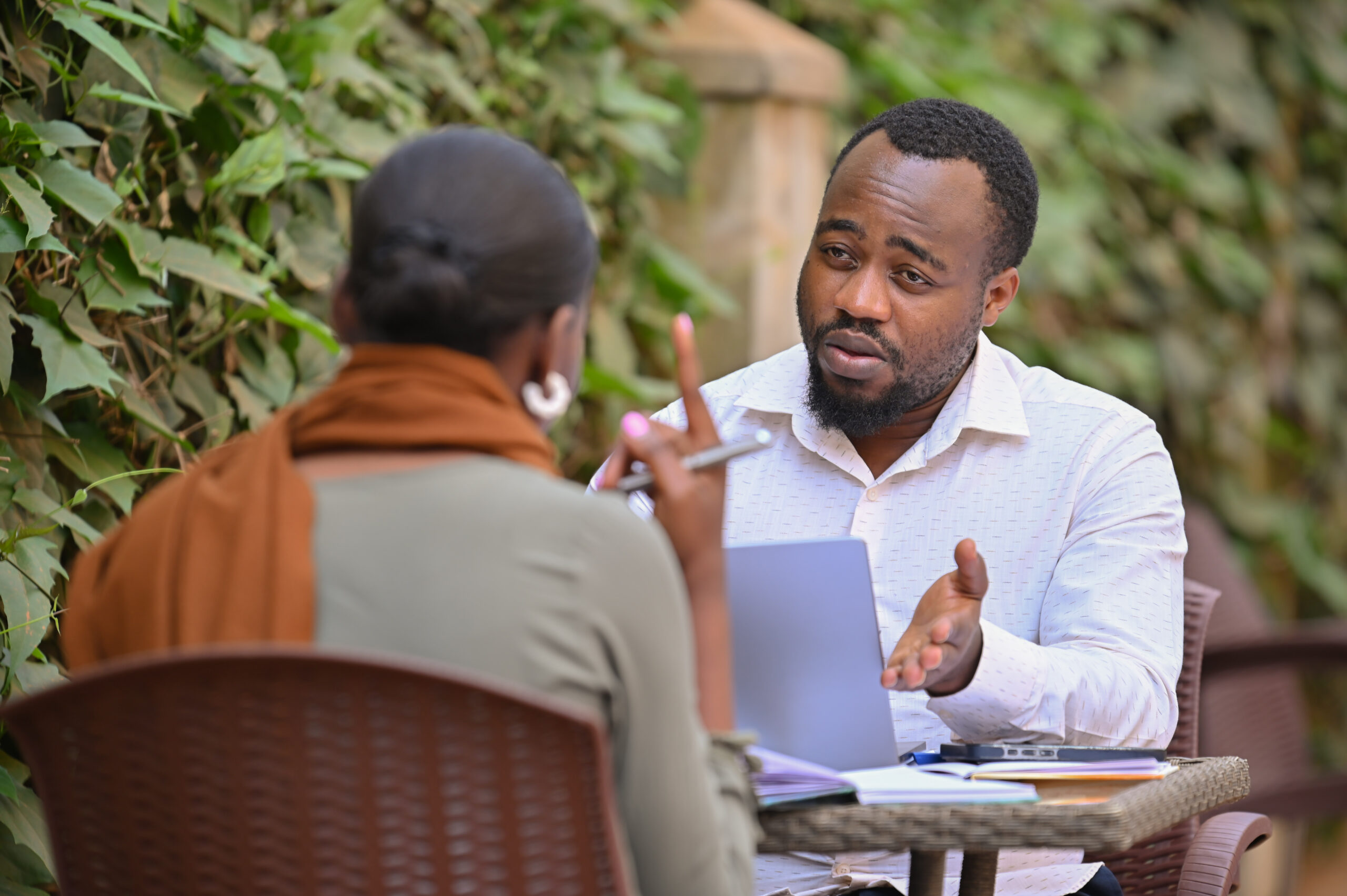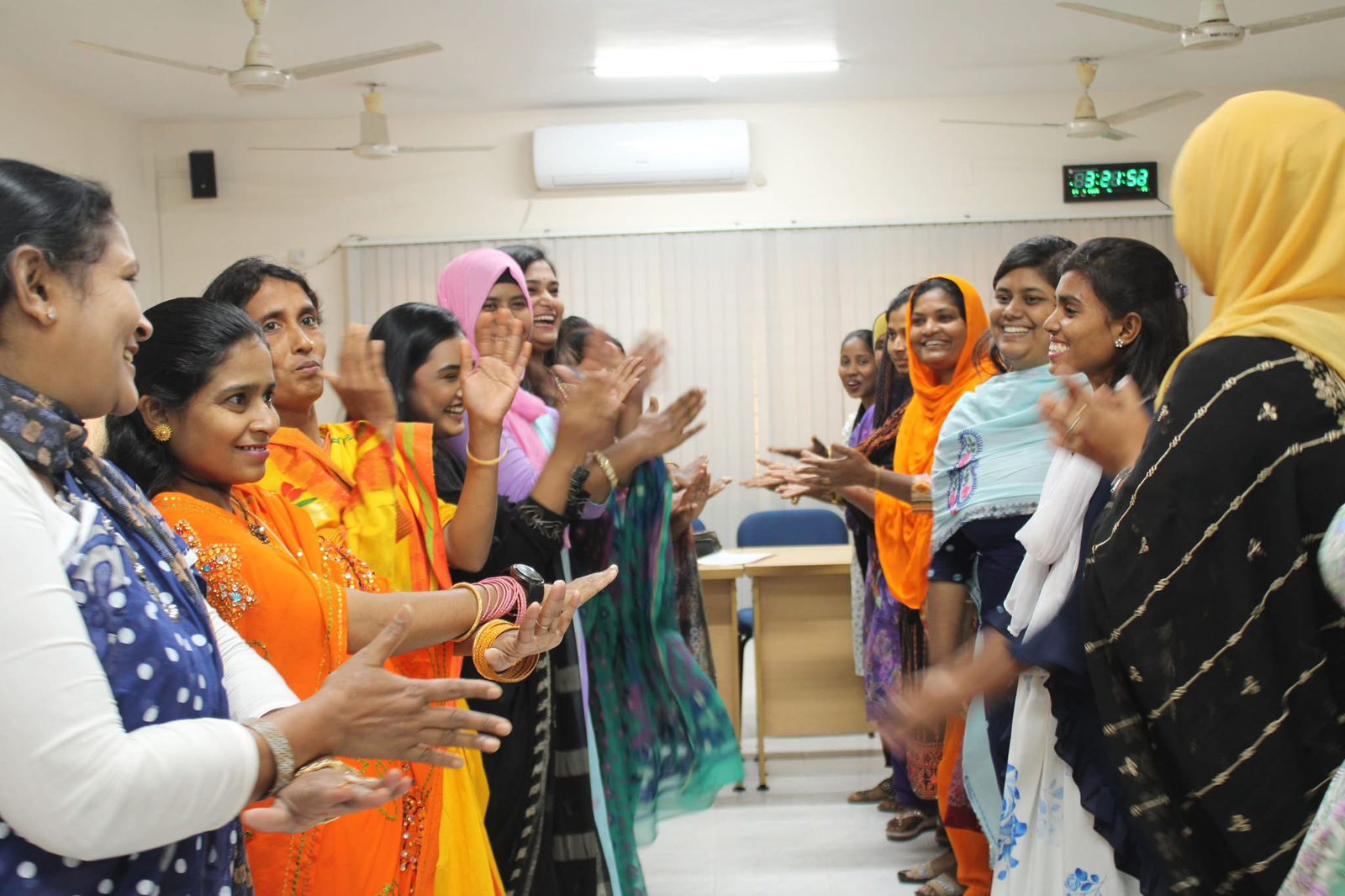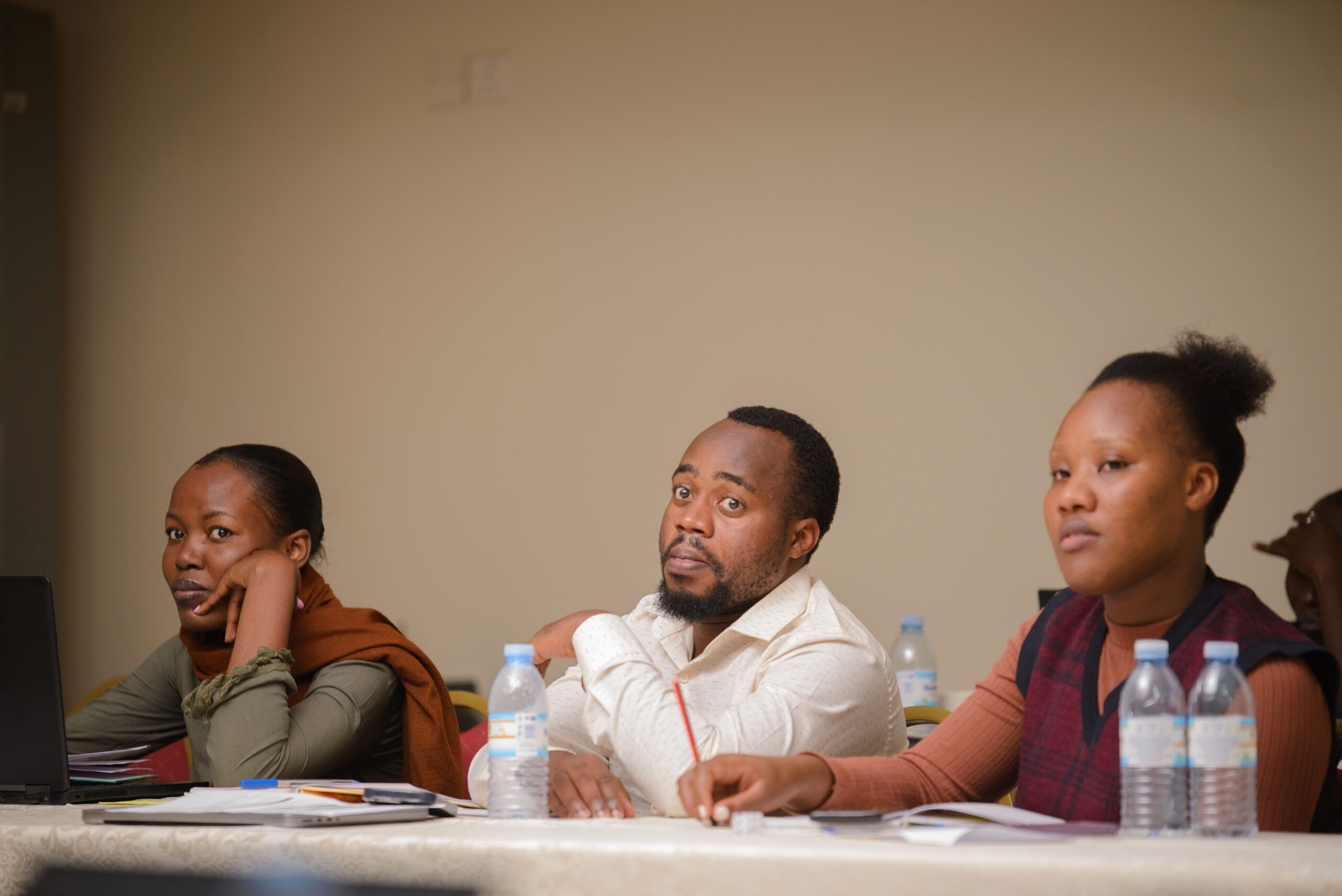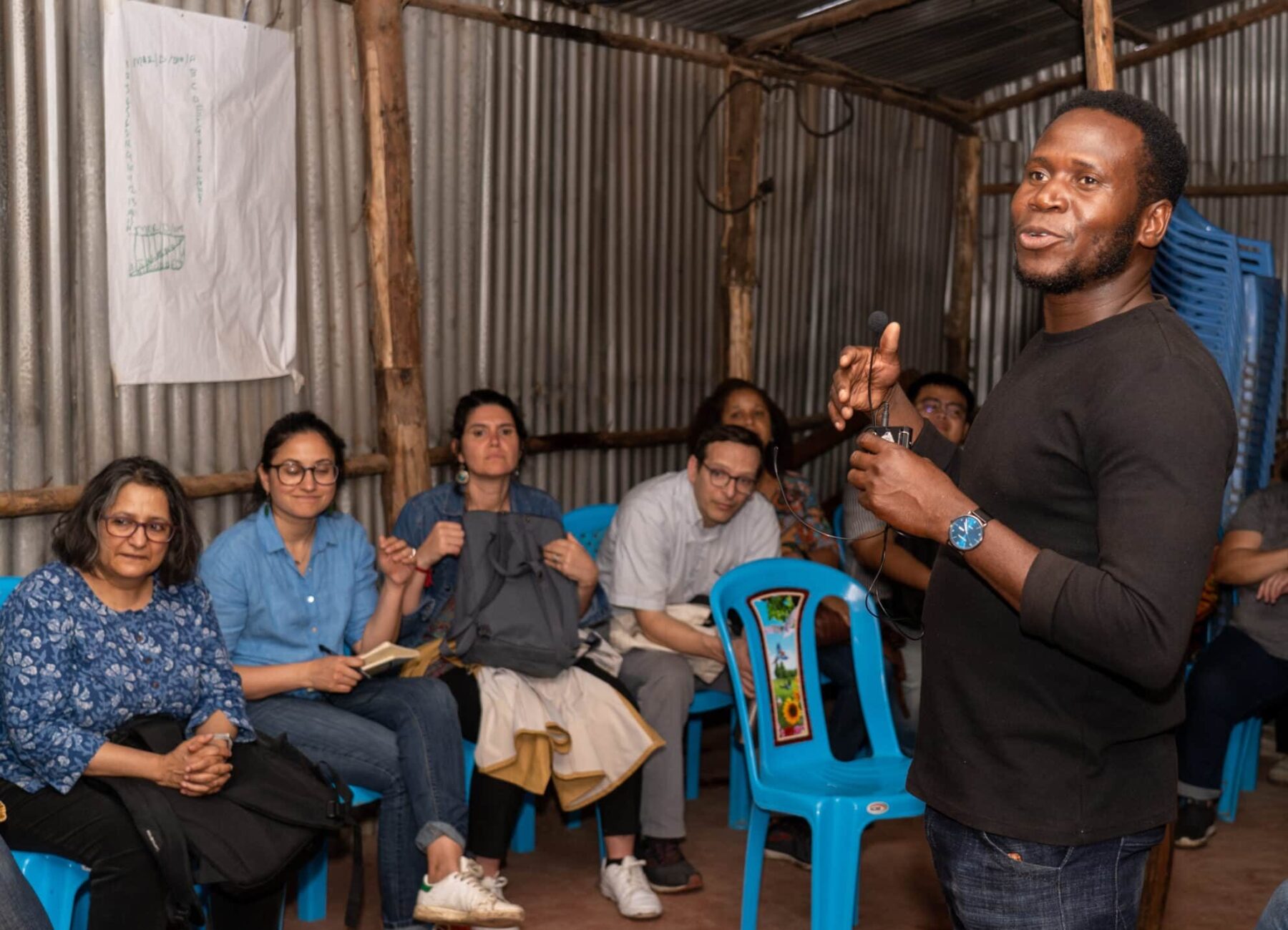
NAIROBI, KENYA – The convening facilitator posed a provocative question: Are lawyers essential to the work of legal empowerment? We were asked to arrange ourselves in a line, from strong agreement on one end of the room to strong disagreement on the other, according to our response.
The group in the room included seasoned justice activists, researchers, and human rights defenders from various organizations and countries pursuing action research projects with Namati, the Legal Empowerment Network, and Canada’s International Development Research Centre—as well as, yes, several lawyers. We shuffled around the convening space, offering apologetic smiles to the lawyers, until we formed a human spectrum of perspectives.
I and other members of the Legal Empowerment Fund (LEF) team joined this recent legal empowerment convening in Kenya for mutual learning and partnership building. The LEF, a program of the Fund for Global Human Rights, aims to support legal empowerment activists and grassroots groups in their efforts to close the global justice gap. The LEF understands legal empowerment to be a people-centered approach to enable communities experiencing injustice to use and benefit from laws and legal mechanisms.
With this understanding of legal empowerment, it certainly sounds like lawyers would have a critical role to play. Yet, I can also think of examples of lawyers being prohibitively expensive, too busy to take on important cases, disconnected from clients they aim to serve, or using the law to hinder inclusive and equitable justice outcomes.
So, where did the group land?
Although we had a variety of perspectives, we ultimately agreed to keep lawyers in the mix! Of course, the initial question is impossible to answer without more information and many caveats. But this is a useful facilitation technique to help a diverse group surface assumptions and reflect on a common question.
My personal takeaways from the discussion were that lawyers are both necessary and insufficient pieces of the complex justice puzzle. There are different ways for lawyers—and legal aid providers—to use their legal expertise in partnership with the communities most affected by injustices. Lawyers and legal aid providers can play a crucial bridging function to connect community power and justice institutions towards more people-centered outcomes.
I also realized that as a nonprofit and participatory grantmaking initiative, the LEF shares many of these same functions in our support of grantee organizations’ efforts to narrow justice gaps within their communities and beyond. We are a contributing but insufficient source of funding and solidarity for legal empowerment and human rights activism. We also offer a connective function in the learning processes we undertake and support. It turns out that lawyers and public charities, like the Fund, have much more in common than I expected.
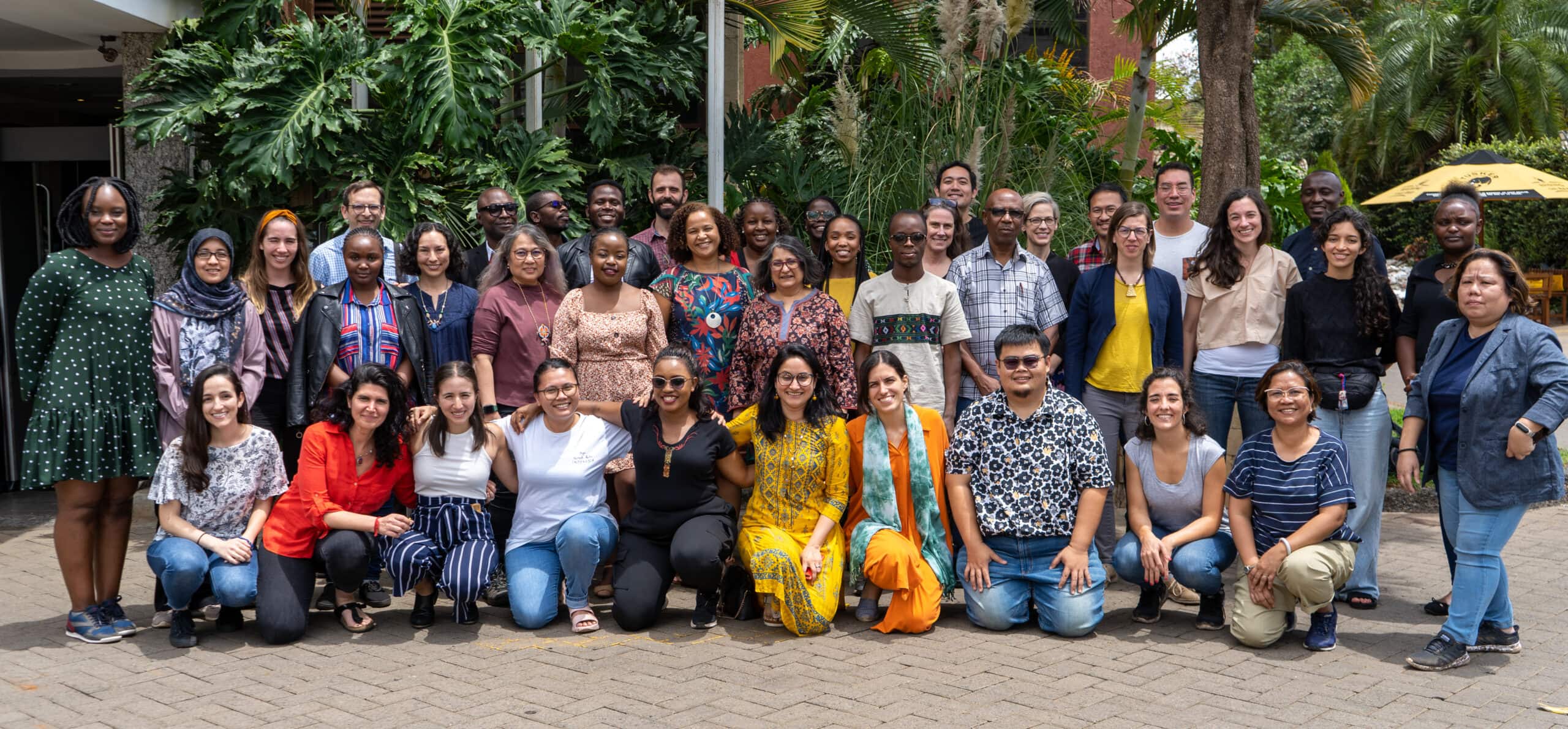
These reflections have helped me think through how we might design and use learning from the LEF’s work.
First, the LEF must support learning that is both useful for individual activists and meaningful for a developing field. As the global community of LEF grantee partners grows, so too does the diversity of grantee organizational structures, languages, legal contexts, justice issues, and legal empowerment strategies. These differences offer opportunities for powerful learning processes and insights. And they present challenges to designing learning activities that are useful for legal empowerment activists in different contexts.
To balance individual and collective learning, the LEF must draw on its principles. The LEF’s participatory grantmaking model is an asset to build on in funding and supporting learning that is activist-driven. And the community-embedded work of grantee groups will help them to steer useful learning to adapt and assess their efforts to secure rights with marginalized groups.
Secondly, the LEF learning agenda must be complementary to efforts already underway. As a newer actor in the legal empowerment ecosystem, the LEF benefits greatly from the established body of evidence, rich practices that has informed our grantmaking and learning work. As this ecosystem evolves, an iterative process is needed to develop strategic learning and action questions and activities.
Learning serves several functions in pursuing the LEF’s vision, which can inform the purpose of our learning agenda. As a grantmaker, the LEF aims to strengthen legal empowerment activist–centered learning through its support. Learning practices represent a strategy for solidarity and action among activists and with our strategic partners. Here, the LEF’s bridging function can connect learnings across the distinct layers of legal empowerment and human rights strategies and actions.
Inspired by the lawyers and justice activists that brought a learning agenda to life at this convening, I’m excited for the future of the LEF’s learning processes and support. As we move forward in partnership with grassroots and community-based legal empowerment activists, we’re in good company.
Alison Miranda is the director of learning and assessment at the Fund for Global Human Rights.
